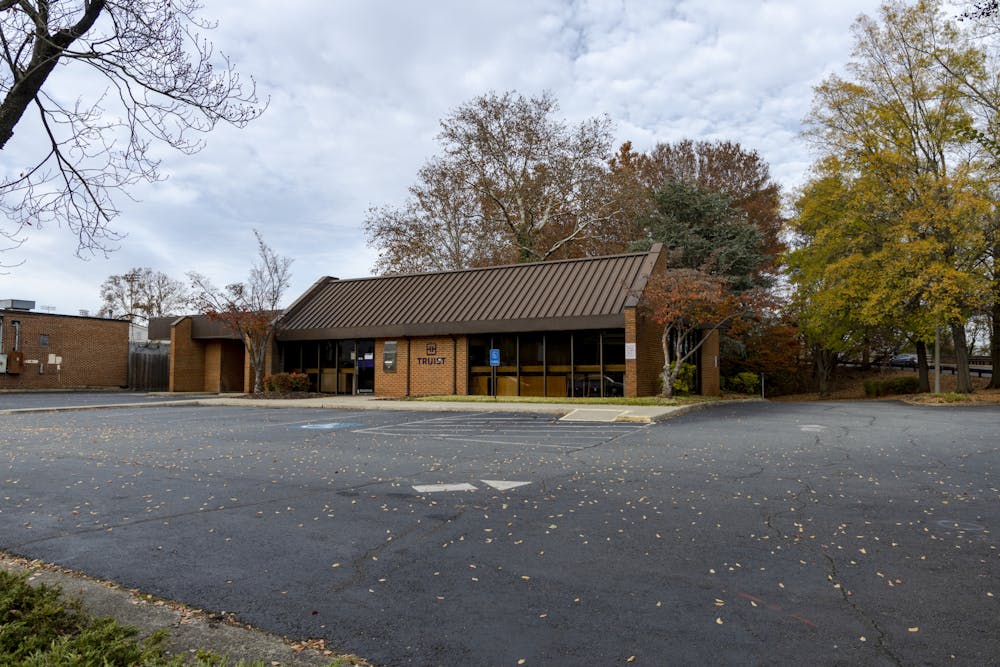There’s nothing quite like waking up to the sweet, sweet sound of construction noises at 7 a.m. Unfortunately, for many students, this has been their reality for as long as they have attended the University — our school just seems to keep expanding. From the construction of Contemplative Commons on Grounds to the Ivy Corridor Projects off Grounds, University President Jim Ryan has jump-started his plan to make the University the top public school in the nation by the end of the decade by creating spaces to further grow our residential learning environment. The administration only seems to support development efforts within our community, however, when these efforts originate from the University itself.
Ahead of the City Planning Commission’s Nov. 14 meeting, the University released a statement condemning a zoning proposal for a 10-story apartment building at 2117 Ivy Road, ironically sandwiched between two University-owned properties. The Commission unanimously accepted this proposal, thus sending it to Charlottesville City Council for final review. As it stands, the University is the largest single provider for student housing — it makes sense that it would want to retain this title by opposing a zoning proposal that would create additional housing options. The University, however, must look out for more than just itself. On top of providing $2 million in affordable housing funding, this project would create tens of millions of dollars in tax revenue that the City would miss out on if the University bought the property. The University was wrong to denounce this proposal, and must support housing initiatives that provide students more housing options without impacting marginalized communities — even if they didn’t originate with the University.
The zoning proposal is aimed towards the construction of an apartment complex where Truist Bank used to be. The developers are gearing this housing towards University students, faculty and young professionals — if approved, the proposal would rezone the property from an “urban corridor'' to a “planned unit development,” allowing the developers to increase the amount of dwelling units in the area. Despite being next-door neighbors to the property, the University issued a letter arguing that the PUD represents a “major departure” from the urban planning goals of the City, without citing what these urban planning goals actually are. The University should have just said this proposal represents a major departure from their own goals. Just next to 2117 Ivy Road, the University has amassed its own properties — both the Ivy Square Shopping Center and Moe’s Original BBQ — which connect to a 14.5-acre strip from Emmet Street to Copeley Road known as the Emmet-Ivy Corridor. Opposing this proposal is hypocritical, when the University itself has historically extended its boundaries into Charlottesville communities.
The University cites in its letter that the PUD would create a “mismatch with the corridor’s intended scale, traffic and character” and also could affect the safety of the area. This argument is premised on the idea that the University has full authority over the “contextual approach” of the Ivy Corridor. It does not. Ivy Road, Copeley Road and Emmet Street are actually owned by the City of Charlottesville. Buying out 14.5 acres of land along that strip does not grant the University the authority to dictate the intended scale, traffic and character of the area. In this same letter, the University announced its construction of a new parking garage at the Copeley and Massie Road intersection — so traffic must not be an issue two minutes down the road. Safety in Charlottesville has of course continued to be a prominent concern for citizens, but this trend of increased crime is not stemming from student renters — or any students for that matter — who would be living at 2117 Ivy Rd. The University’s own Ivy Corridor Strategic Planning Study affirms that “the western corner of the Ivy Corridor has the potential for transformative change from a low-density suburban condition to a vibrant street edge and threshold to the University.” Would the addition of a 10-story, student-housed apartment complex not do just that?
Denying students additional access to housing also strains an already-struggling housing market for predominantly Black communities like the 10th & Page and Fifeville neighborhoods. As students increasingly move off Grounds, demand — and rates — for housing go up, pushing out already cost-burdened renters. This trend extends to homeowners — almost one in four Black homeowners in Charlottesville have been forced out of their homes since 2000. Predominantly Black neighborhoods have been continually moved in the name of both city and University growth and progress. The University says that it has “embraced its role as a good neighbor” on Ivy Road for over a decade. If the University was committed to the well-being of the Charlottesville community, it would support a zoning proposal that would take unused land and turn it into homes for students, reducing the burden our presence places on marginalized communities.
The creation of a new, privately-owned apartment complex is a necessary and feasible start to mitigating the rising housing crisis University students — and the greater Charlottesville community — face. President Ryan says that the University’s development of the Ivy Corridor serves as the “front door” of the University. If the University truly wanted to be a good member of the Charlottesville community, it would have supported the zoning proposal for 2117 Ivy Rd. Its current opposition of this zoning proposal and self-interested desire to continue expanding into Charlottesville without regard for marginalized communities and students' access to affordable housing show that the University cares more about becoming a number one institution than being a good neighbor.
Grace Duregger is an Opinion Editor for The Cavalier Daily. She can be reached at opinion@cavalierdaily.com.







